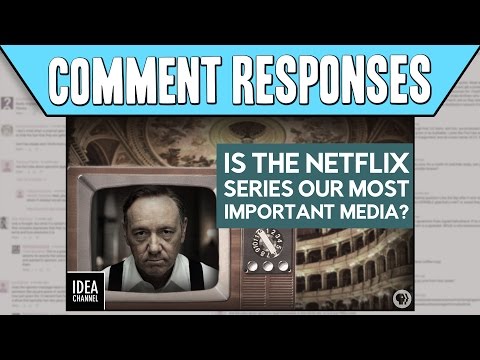 19:35 Bo Hopkins: Innovative Student Work in Africa Bo Hopkins is a lecturer at the MacMillan Center, the Jackson Institute, and the Yale School of Management. He has more than 30 years of private industry investment, management, and consulting expe...
19:35 Bo Hopkins: Innovative Student Work in Africa Bo Hopkins is a lecturer at the MacMillan Center, the Jackson Institute, and the Yale School of Management. He has more than 30 years of private industry investment, management, and consulting expe... 42:44 “A Communion of Subjects: Law, Environment, and Religion” with Scott Russell Sanders The fourth installment of “A Communion of Subjects: Law, Environment, and Religion” features an interview with Scott Russell Sanders, Distinguished Professor Emeritus at Indiana University, Bloomin...
42:44 “A Communion of Subjects: Law, Environment, and Religion” with Scott Russell Sanders The fourth installment of “A Communion of Subjects: Law, Environment, and Religion” features an interview with Scott Russell Sanders, Distinguished Professor Emeritus at Indiana University, Bloomin... 59:11 Science on Saturdays – Judy Cha (Yale Engineering) – Watching Atoms Move If Elvis had been a scientist, he would have become a materials physicist just to watch atoms shake, rattle and roll. This Saturday, listen to Professor Judy Cha tell us about the tools she uses to...
59:11 Science on Saturdays – Judy Cha (Yale Engineering) – Watching Atoms Move If Elvis had been a scientist, he would have become a materials physicist just to watch atoms shake, rattle and roll. This Saturday, listen to Professor Judy Cha tell us about the tools she uses to... 1:25:14 Joshua Scodel (Chicago), The 2017 Adam and Anne Amory Parry Lecture at Yale Professor Scodel speaks on “’Sweet Liberty’ and Literary Tradition in Milton’s ‘L’Allegro’”, a lecture sponsored by the Departments of Classics and Comparative Literature, and by the Workshop on th...
1:25:14 Joshua Scodel (Chicago), The 2017 Adam and Anne Amory Parry Lecture at Yale Professor Scodel speaks on “’Sweet Liberty’ and Literary Tradition in Milton’s ‘L’Allegro’”, a lecture sponsored by the Departments of Classics and Comparative Literature, and by the Workshop on th... 1:37:07 Peace and Stability in the Region of the Black Sea H.E. Ambassador Kaha Imnadze, Permanent Representative of Georgia to the United Nations
1:37:07 Peace and Stability in the Region of the Black Sea H.E. Ambassador Kaha Imnadze, Permanent Representative of Georgia to the United NationsH.E. Ambassador Vlad Lupan, Permanent Representative of the Republic of Moldova to the United Nations
Colonel...
 43:08 “A Communion of Subjects: Law, Environment, and Religion” with Robin Kimmerer This installment of “A Communion of Subjects: Law, Environment, and Religion” features an interview with Dr. Robin Wall Kimmerer, author of the Gathering Moss and Braiding Sweetgrass. We discuss th...
43:08 “A Communion of Subjects: Law, Environment, and Religion” with Robin Kimmerer This installment of “A Communion of Subjects: Law, Environment, and Religion” features an interview with Dr. Robin Wall Kimmerer, author of the Gathering Moss and Braiding Sweetgrass. We discuss th... 46:07 “A Communion of Subjects: Law, Environment, and Religion” with Katharine Jefferts Schori The third installment of “A Communion of Subjects: Law, Environment, and Religion” features an interview with Katharine Jefferts Schori, Former Presiding Bishop of the Episcopal Church of the Unite...
46:07 “A Communion of Subjects: Law, Environment, and Religion” with Katharine Jefferts Schori The third installment of “A Communion of Subjects: Law, Environment, and Religion” features an interview with Katharine Jefferts Schori, Former Presiding Bishop of the Episcopal Church of the Unite... 46:04 “A Communion of Subjects: Law, Environment, and Religion” with Carl Safina The first installment of “A Communion of Subjects: Law, Environment, and Religion” features an interview with Carl Safina, President of the Safina Center.
46:04 “A Communion of Subjects: Law, Environment, and Religion” with Carl Safina The first installment of “A Communion of Subjects: Law, Environment, and Religion” features an interview with Carl Safina, President of the Safina Center. 1:31:05 Rüdiger Campe and Joanna Radin in conversation with Rosi Braidotti Philosopher Rosi Braidotti of Utrecht University in the Netherlands delivered the 2017 Tanner Lectures on Human Values this spring at the Yale’s Whitney Humanities Center. Her talks are jointly ti...
1:31:05 Rüdiger Campe and Joanna Radin in conversation with Rosi Braidotti Philosopher Rosi Braidotti of Utrecht University in the Netherlands delivered the 2017 Tanner Lectures on Human Values this spring at the Yale’s Whitney Humanities Center. Her talks are jointly ti... 26:20 Milan Svolik: Polarization and the Subversion of Democracy in Latin America Professor Svolik has authored and co-authored articles on the politics of authoritarian regimes and democratization in leading political science journals, including the "American Political Science ...
26:20 Milan Svolik: Polarization and the Subversion of Democracy in Latin America Professor Svolik has authored and co-authored articles on the politics of authoritarian regimes and democratization in leading political science journals, including the "American Political Science ... 20:06 Louisa Lombard: "State of Rebellion: Violence and Intervention in the Central African Republic" Professor Lombard is a cultural anthropologist who studies African borderland areas where the state is largely absent, and a range of actors govern. Her research locales, primarily the remote and l...
20:06 Louisa Lombard: "State of Rebellion: Violence and Intervention in the Central African Republic" Professor Lombard is a cultural anthropologist who studies African borderland areas where the state is largely absent, and a range of actors govern. Her research locales, primarily the remote and l... 18:37 Tassos Kyriakides: Nutrition, Public Health, and Filotimo in Greece Professor Tassos’ primary research focus is in the area of infectious diseases with particular emphasis on HIV/AIDS and its treatment. He also has an interest in the history of medicine, social det...
18:37 Tassos Kyriakides: Nutrition, Public Health, and Filotimo in Greece Professor Tassos’ primary research focus is in the area of infectious diseases with particular emphasis on HIV/AIDS and its treatment. He also has an interest in the history of medicine, social det... 1:30:31 Competitive Cities: A Local Solution to a Global Lack of Growth and Jobs Megha Mukim, 2006-07 Fox International Fellow and competitive cities team lead at World Bank Group
1:30:31 Competitive Cities: A Local Solution to a Global Lack of Growth and Jobs Megha Mukim, 2006-07 Fox International Fellow and competitive cities team lead at World Bank GroupJeffrey Sonnenfeld, Senior Associate Dean for Leadership Studies & Lester Crown Professor in the P...
 1:40:52 Rosi Braidotti, “Aspirations of a Posthumanist” Philosopher Rosi Braidotti of Utrecht University in the Netherlands delivered the 2017 Tanner Lectures on Human Values this spring at the Yale’s Whitney Humanities Center. Her talks are jointly ti...
1:40:52 Rosi Braidotti, “Aspirations of a Posthumanist” Philosopher Rosi Braidotti of Utrecht University in the Netherlands delivered the 2017 Tanner Lectures on Human Values this spring at the Yale’s Whitney Humanities Center. Her talks are jointly ti... 1:03:59 Rosi Braidotti, “Memoirs of a Posthumanist“ Philosopher Rosi Braidotti of Utrecht University in the Netherlands delivered the 2017 Tanner Lectures on Human Values this spring at the Yale’s Whitney Humanities Center. Her talks are jointly ti...
1:03:59 Rosi Braidotti, “Memoirs of a Posthumanist“ Philosopher Rosi Braidotti of Utrecht University in the Netherlands delivered the 2017 Tanner Lectures on Human Values this spring at the Yale’s Whitney Humanities Center. Her talks are jointly ti... 1:16:32 The Teachings of Plants: Finding Common Ground Between Traditional and Scientific Knowledge Dr. Robin W. Kimmerer, Distinguished Teaching Professor and Director, Center for Native Peoples and the Environment, SUNY-ESF
1:16:32 The Teachings of Plants: Finding Common Ground Between Traditional and Scientific Knowledge Dr. Robin W. Kimmerer, Distinguished Teaching Professor and Director, Center for Native Peoples and the Environment, SUNY-ESFIn traditional ecological knowledge, plants are regarded not



















